Increasing Support for Evacuees from Ukraine to 2,000 People65% wish to stay in Japan for an extended period
At a press conference held on July 29, 2022, at The Nippon Foundation headquarters in Tokyo, The Nippon Foundation announced that it has decided to increase the number of evacuees from Ukraine that it will support with daily living and other expenses to 2,000. This is double the initial figure announced on March 28, prior to the program’s commencement in April, and will bring the total amount of assistance budgeted to 8.58 billion yen.
More than 1,600 people from Ukraine have already evacuated to Japan, and as of July 27, The Nippon Foundation had received applications for support for 1,321 people. The decision to increase the number of people supported was based on the fact that the conflict appears likely to continue for some time, and the Foundation expects to receive additional applications going forward.
In a survey of the applicants, 65% responded that they hoped to reside in Japan for an extended period of time. Asked about their needs, Japanese language education was the most cited, at 66%. In addition, 27% indicated a need for mental health support, with responses including having difficulty sleeping and feeling isolated. The Nippon Foundation is already providing opportunities for evacuees to study Japanese through support for programs being carried out by NGOs, and plans to expand its support to include things like online mental health counseling.
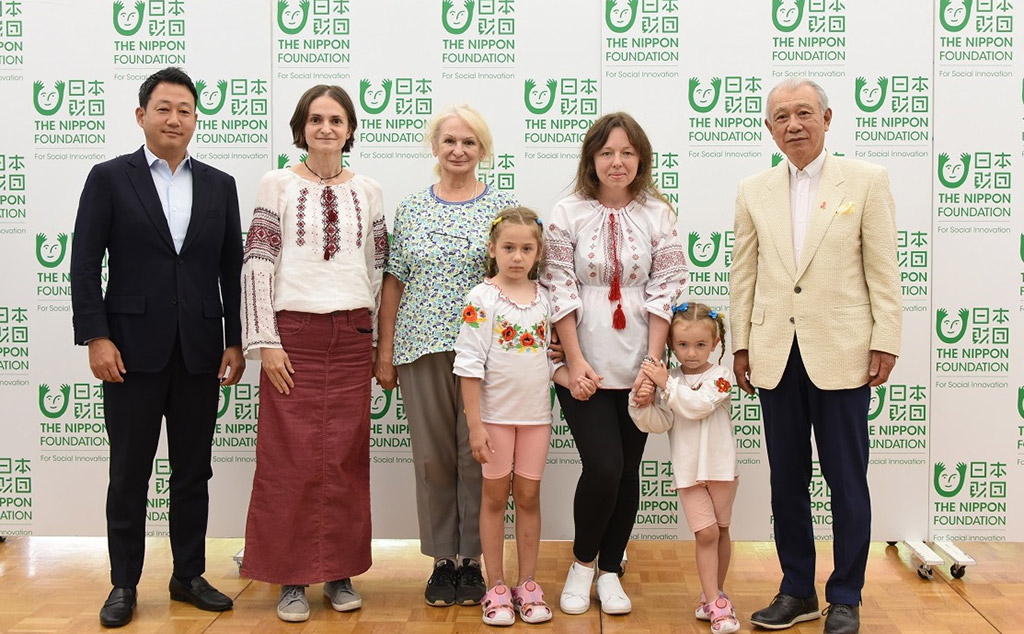
Speakers’ comments
Jumpei Sasakawa, Executive Director, The Nippon Foundation
The survey has shown us various uncertainties and issues facing evacuees living in Japan.
In terms of issues, it is no surprise that the language barrier is the most difficult issue they face in their lives here. We need to think about whether it is really appropriate for our support to be simply to ask them to learn Japanese. We may also be able to make greater use of interpreters to enable them to work, or to help them find jobs where they don’t need to be able to speak Japanese. Many of these people can work and want to work, and we want to welcome them as members of society.
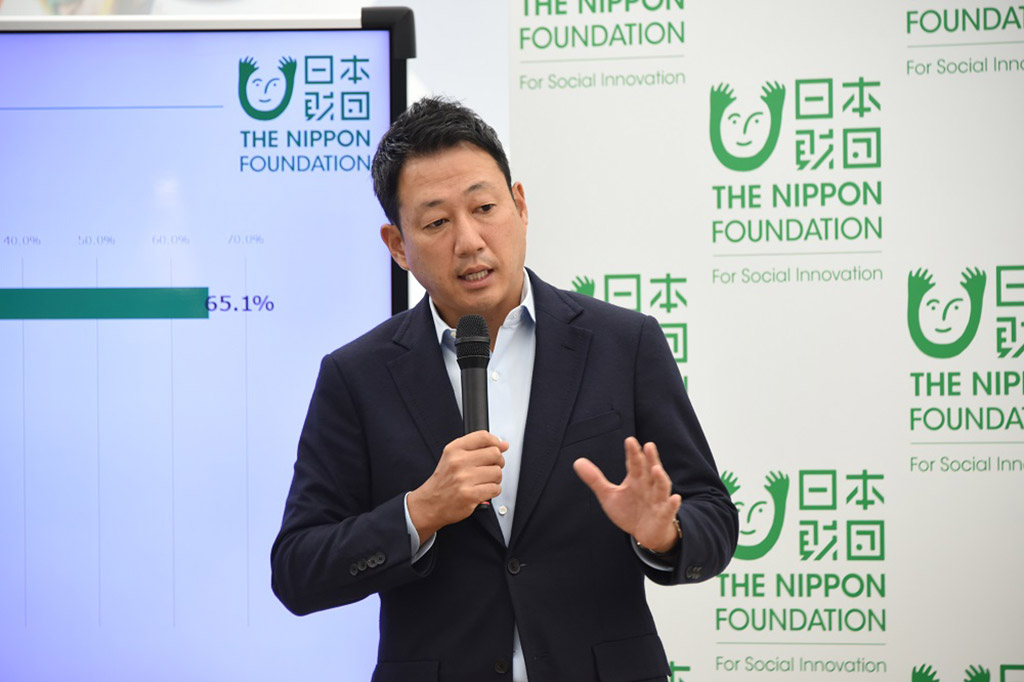
Nataliia Muliavka, evacuee from Ukraine
When we arrived in Japan on March 26, I was initially very confused. The environment was different, I could not speak the language, and I didn’t know anyone. I came with just one suitcase, but as I live here I am accumulating belongings. We are now living with my aunt, but I hope to be able to live with just my family. I would like to live in public housing, but there is no public housing available in Yokohama where we are now. If we were to move, my daughters would have to change schools. We’ve just moved here from Ukraine, so I don’t want them to have to change schools again. With the assistance from The Nippon Foundation, we are thinking about looking for an apartment close to where we are now. I am very thankful to be able to choose a place in an area that we like.
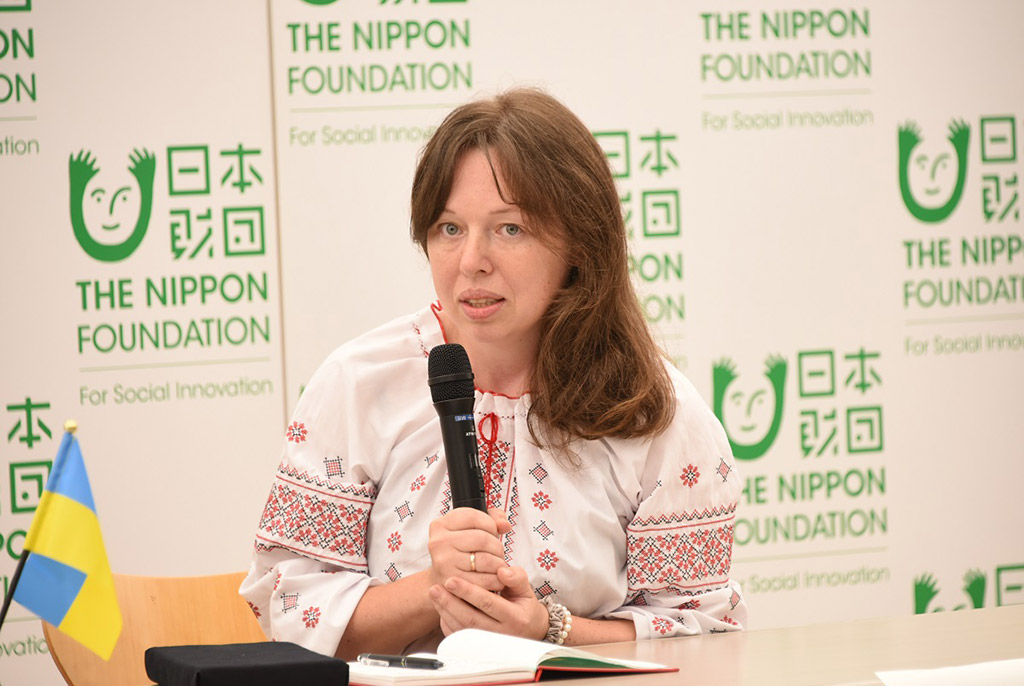
Olena Svidran, guarantor for her mother, who has evacuated from Ukraine
The language barrier is difficult. For the first month my mother was here, she didn’t leave our house. Lately, I have been asking her little-by-little to go to the convenience store or supermarket to do shopping for me. It is important for my mother to have a place in society. A long-term stay is completely different from a short-term stay. Not having your own daily rhythm creates stress. She started studying Japanese online a week after arriving. At first she didn’t like it, but the teacher was very kind and after three months she can read hiragana characters and speak a little Japanese. The change I have seen in her makes me very happy. I believe that overcoming the Japanese language barrier will be key.
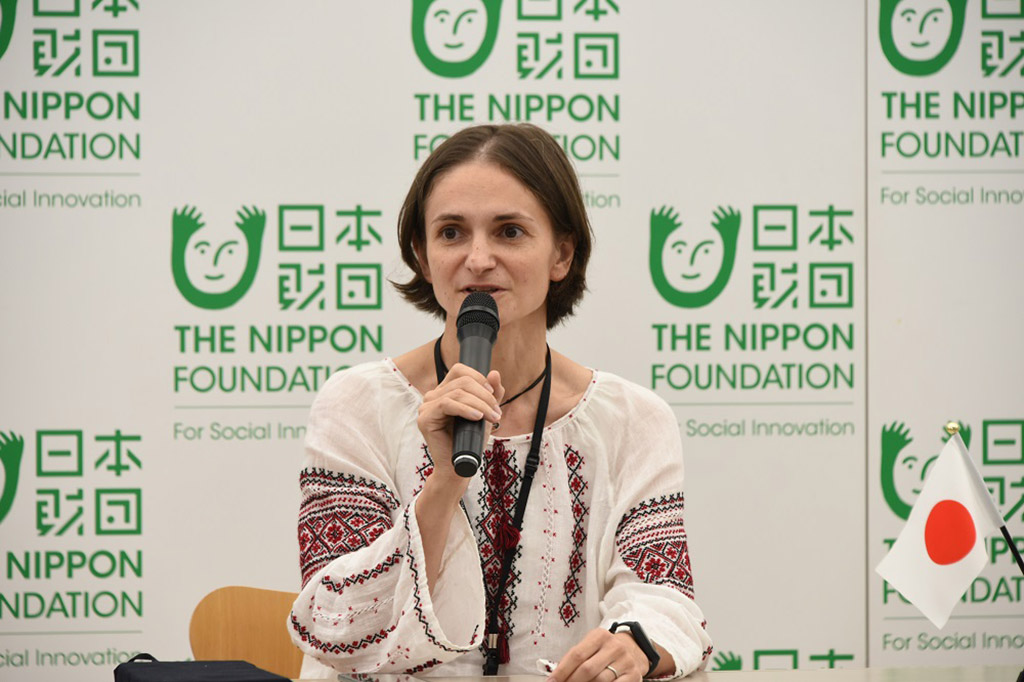
Yohei Sasakawa, Chairman, The Nippon Foundation
We have already received applications for more than 1,000 people. Considering that people are contacting us practically every day about coming to Japan, we have decided to offer support to 1,000 more people.
In addition to financial assistance, we want to build a platform as a form of humanitarian assistance that enables people to interact and consult with each other on a daily basis. Normally, this should probably be a government project, but given The Nippon Foundation’s experience in international humanitarian assistance, we will continue to strive to carry out this project.
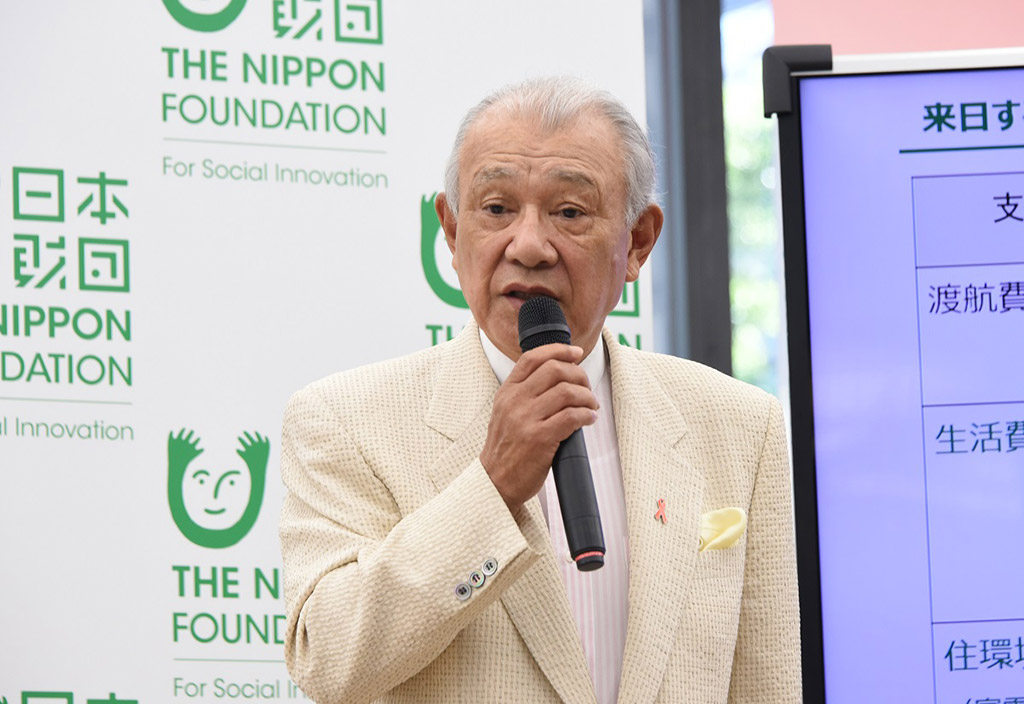
Overview of additional assistance
| Announced on March 28 | Announced on July 29 | Total (Planned) | |
|---|---|---|---|
| Assistance for travel expenses to Japan | 300 million yen (300,000 yen x 1,000 people) |
Airline ticket prices currently average 150,000, so no additional budget at this time | 300 million yen |
| Assistance for living expenses in Japan | 3 billion yen (1 million yen/year x 1,000 people x 3 years)
|
3 billion yen (1 million yen/year x 1,000 people x 3 years)
|
6 billion yen |
| Assistance for home furnishing expenses | 250 million yen (500,000 yen x 500 households) |
500 million yen (500,000 yen x 1,000 households) |
750 million yen |
| Support to NGOs | 1.53 billion yen (3-year budget) |
— | 1.53 billion yen |
| Total | 5.08 billion yen | 3.5 billion yen | 8.58 billion yen |
Overview of survey responses
Q: What are your intentions and hopes for returning to Ukraine?
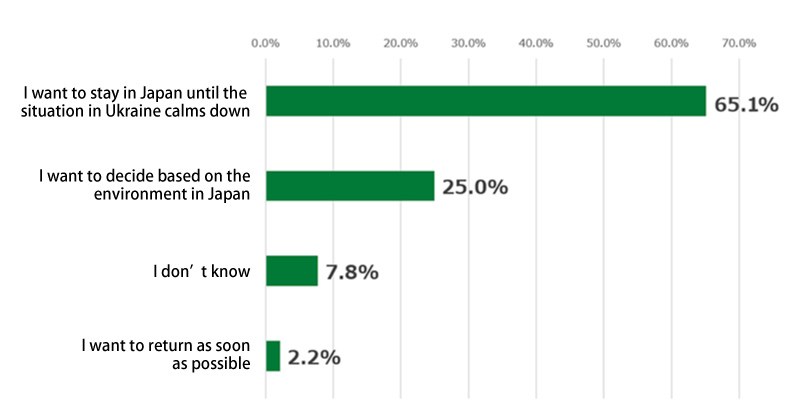
Q: Please select up to the five most important needs you have or services you require.
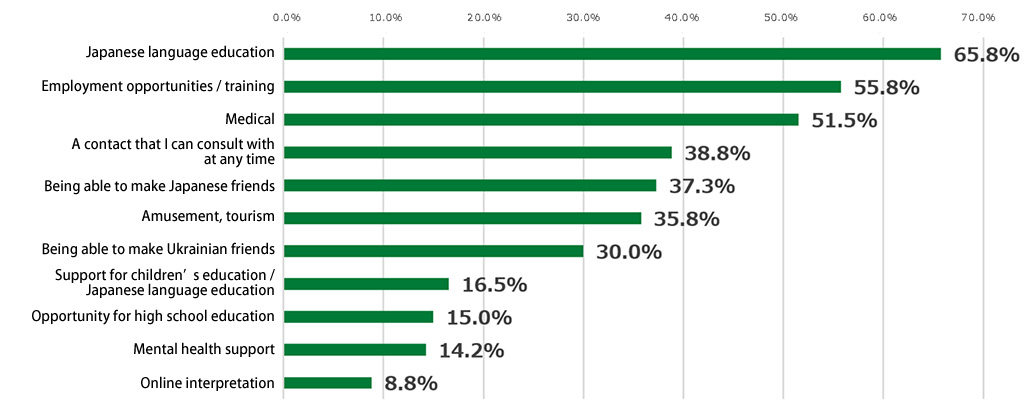
Q: Please select up to five things that you find insufficient with current assistance in Japan.
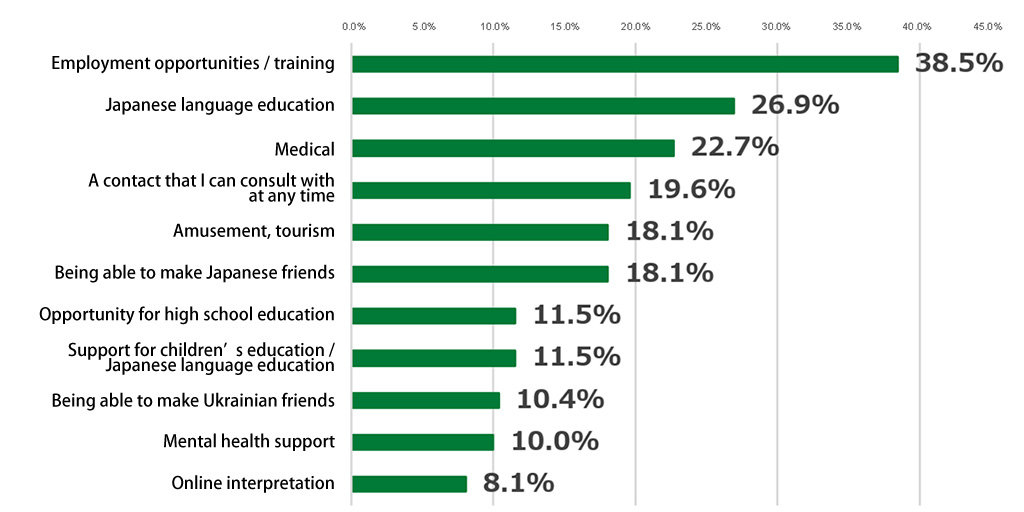
Q: Do you have any concerns or problems? Please select all that apply.

Q: Are there any persons or organizations you can consult with and will support you when you have problems? Please select all that apply.

Survey overview
| Coverage | Ukrainians who have evacuated to Japan and applied to The Nippon Foundation for assistance |
|---|---|
| Period | June 13 – July 27, 2022 (ongoing) |
| No. of responses | 260 (as of 6:00 p.m., July 27) |
- * Survey conducted using the Ukrainian evacuee support platform provided gratis by SAP Japan Co., Ltd. and Qualtrics Japan LLC
Related Link
Contact
Regarding this release
Public Relations Team, The Nippon Foundation
- Email: cc@ps.nippon-foundation.or.jp
Regarding support for people displaced from Ukraine
The Nippon Foundation Office for People Displaced from Ukraine
- Email: support_ukraine@ps.nippon-foundation.or.jp



